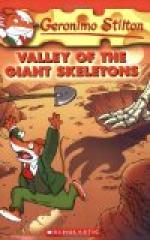Throughout the happy years of Bryce’s boyhood his father continued to enlarge and improve his sawmill, to build more schooners, and to acquire more redwood timber. Lands, the purchase of which by Cardigan a decade before had caused his neighbours to impugn his judgment, now developed strategical importance. As a result those lands necessary to consolidate his own holdings came to him at his own price, while his adverse holdings that blocked the logging operations of his competitors went from him—also at his own price. In fact, all well-laid plans matured satisfactorily with the exception of one, and since it has a very definite bearing on the story, the necessity for explaining it is paramount.
Contiguous to Cardigan’s logging operations to the east and north of Sequoia, and comparatively close in, lay a block of two thousand acres of splendid timber, the natural, feasible, and inexpensive outlet for which, when it should be logged, was the Valley of the Giants. For thirty years John Cardigan had played a waiting game with the owner of that timber, for the latter was as fully obsessed with the belief that he was going to sell it to John Cardigan at a dollar and a half per thousand feet stumpage as Cardigan was certain he was going to buy it for a dollar a thousand—when he should be ready to do so and not one second sooner. He calculated, as did the owner of the timber, that the time to do business would be a year or two before the last of Cardigan’s timber in that section should be gone.
Eventually the time for acquiring more timber arrived. John Cardigan, meeting his neighbour on the street, accosted him thus:
“Look here, Bill: isn’t it time we got together on that timber of yours? You know you’ve been holding it to block me and force me to buy at your figure.”
“That’s why I bought it,” the other admitted smilingly. “Then, before I realized my position, you checkmated me with that quarter-section in the valley, and we’ve been deadlocked ever since.”
“I’ll give you a dollar a thousand stumpage for your timber, Bill.”
“I want a dollar and a half.”
“A dollar is my absolute limit.”
“Then I’ll keep my timber.”
“And I’ll keep my money. When I finish logging in my present holdings, I’m going to pull out of that country and log twenty miles south of Sequoia. I have ten thousand acres in the San Hedrin watershed. Remember, Bill, the man who buys your timber will have to log it through my land—and I’m not going to log that quarter-section in the valley. Hence there will be no outlet for your timber in back.”
“Not going to log it? Why, what are you going to do with it?”
“I’m just going to let it stay there until I die. When my will is filed for probate, your curiosity will be satisfied—but not until then.”
The other laughed. “John,” he declared, “you just haven’t got the courage to pull out when your timber adjoining mine is gone, and move twenty miles south to the San Hedrin watershed. That will be too expensive a move, and you’ll only be biting off your nose to spite your face. Come through with a dollar and a half, John.”




